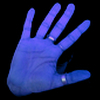90 minutes
Drupal for Museums
Submitted by farriss on Wed, 07/09/2008 - 21:26.Session recording
Overview
Drupal is increasingly making a place for itself among museums around the world. As a strong and flexible framework Drupal can be a good fit for these sorts of organizations.
This session will be a case study and lessons learned from two museum web sites Palantir has built using Druapl 5: The Indianapolis Museum of Art and the Art Institute of Chicago. Both sites offered a number of unique challenges but also the opportunity to share amazing and diverse content.
Agenda
* Bringing Drupal into a large, established web presence
* Designing a modern site that still has a strong artistic feel
* Bridging Drupal to legacy multimedia databases, such as museum collection databases
* Drupal as an application framework
* Existing open source museum tools
Goals
We hope to present both the challenges and rewards of integrating Drupal with large, established systems such as those of museums. We also hope to give some insight into how to bend Drupal farther than you ever thought possible.
Resources
Indianapolis Museum of Art: http://imamuseum.org/
IMA Drupal.org Showcase: http://drupal.org/node/188312
Art Institute of Chicago Collections: http://www.artic.edu/aic/collections/
AIC Drupal.org Showcase: http://drupal.org/node/279485
- 2 comments
- 23 points
Drupal Search: Where are we? Where are we going?
Submitted by robertDouglass on Wed, 07/02/2008 - 19:08.Session recording
Overview
Google has shown us that search matters. Drupal's core search has strengths as well as weaknesses. What are they and how are the weaknesses being addressed? What new search options have emerged, and how does one evaluate them?
Agenda
* Core search in Drupal 7: What needs to be done?
* Minnesota Search Sprint: What got accomplished and where does it go from here?
* Xapian, Sphinx and ApacheSolr: With so many third-party options to choose from, how does one evaluate and decide?
* Search and Drupal.org: What special needs does Drupal.org have, and how can we improve things now and in the future?
Goals
Increase focus on improving core Drupal search. Increase awareness of alternative solutions. Increase awareness of different search features, such as faceted searching. Encourage more collaboration amongst developers.
Resources
* http://drupal.org/project/apachesolr
* http://drupal.org/project/xapian
* http://www.sphinxsearch.com/
* http://groups.drupal.org/node/4102 (Search group on g.d.o.)
- 1 comment
- 57 points
Videocast-o-rama
Submitted by add1sun on Wed, 07/02/2008 - 17:48.Overview
This workshop is for anyone interested in making video tutorials. Many folks like learning by seeing and my goal is to cover the web with Drupal tutorials. I'll be going over how I make my videos and various tips and tricks. I'd really like other folks to bring their experiences on different platforms and share lots of video ideas and help each other out. We'll also talk about what videos are already out there for Drupal and how to add yours to the mix.
Agenda
- What software to use?
- Resources, tips and tricks.
- What material to cover.
- How to get your video up on the web.
- See if we can record a few during the BoF!
Goals
Give anyone interested in making videos some help getting started and provide a venue for existing videocasters to share knowledge.
Resources
If you would like to play along and/or record your own video you should have a laptop, preferably with screen capture software installed already. You can see a list of some popular software for various platforms along with some basic recording tips at http://drupal.org/node/62196.
- 3 comments
- 22 points
Developer Experience: Because Coders Are People Too!
Submitted by bjaspan on Wed, 07/02/2008 - 17:24.Session recording
Overview
User experience (UX) can be defined as “the overall experience and satisfaction a user has when using a product or system.” A product’s UX affects a user’s interest, ability, and enjoyment when using a product. If a product’s UX sucks, people will not use it if they have a choice or hate using it if they do not.
Well, programmers are people, too. When creating a software product like Drupal that is intended to be used by other developers, the UX includes the experience of those developers as they write code for the product.
Since developers face different kinds of issues than the end users of the product, it is useful to consider Development Experience (DX) distinctly from UX. DX might be defined as “the overall experience, satisfaction, and efficiency a software developer has when using a software development platform.”
In this workshop, we'll brainstorm about ways that Drupal's Developer Experience can be improved.
Agenda
* Why Developer Experience matters
* Open discussion of how Drupal's DX can be improved.
Suggestions I'll bring the workshop include using defined names instead of anonymous constants, abandoning anonymous arrays in favor of typed data structures, and replacing form submit handlers with API functions. Please bring your own!
Goals
We'll come up with a list of proposed coding style directions or improvements for Drupal 7+ and contrib modules that will make Drupal a much more enjoyable and efficient platform for which to develop.
Resources
Anyone familiar with Drupal development is qualified and encouraged to attend. In many ways the less experienced you are, the better, as you will not already be indoctrinated into The Drupal Way of doing things.
- 3 comments
- 27 points
Redesign of Drupal.org from the designers
Submitted by Mark Boulton on Wed, 07/02/2008 - 06:07.Session recording
Overview
The design firm that will be selected by the Drupal association will be selected and invited to present at Druaplcon Szeged. This session will explain their design concepts and processes for involving the Drupal community in the design process.
Agenda
* Update on the design process
* Presentation on the design firm
* How the designers will engage the Drupal community
* Presentation of the UX Toolkit for Drupal.org
Goals
The purpose of this session is for the designers to meet the Drupal community and the community to meet the designers. The goal is for the designers to help transfer ideas about the ongoing design improvements for Drupal.org to the community.
Resources
The RFP for Drupal.org redesign. The results of the UX toolkit, and other inputs shared with the design firm.
- 2 comments
- 76 points
A gentle introduction to Drupal coding
Submitted by add1sun on Wed, 07/02/2008 - 04:24.Session recording
Overview
This session is made for folks that are new to coding in general or new to Drupal coding in particular. We'll start off with some basic discussion about working with Drupal as a framework and what that even means. Then we will go through an overview of how Drupal's framework is set up and the various APIs and systems you can work with. This is specifically targeted at people who do not know what FAPI or a "hook" is and are trying to wrap their head around these new concepts. We'll finish up with community resources to help you on your coding journey. The only prerequisite is a curious mind. You don't have to be a l33t hax0r.
Topics to be covered
- How is coding with Drupal different from plain PHP/MySQL?
- Overview of Drupal code base
- What is a hook?
- What is the theme system?
- What is FAPI?
- What is the menu system?
- What about database stuff?
- Coding standards
- Security
- How to learn/get help
Goals
Give people a strong foundation in Drupal concepts from a code perspective as well as pointers to good resources for continued learning.
- 1 comment
- 35 points
BoF: Porting contrib modules to D6.x
Submitted by demeester_roel on Sat, 06/28/2008 - 15:59.Overview
Drupal 6 is out now for almost 5 months, but a lot of modules haven't been ported to D6. Yet people seem to screaming for them and with cck and views 2 almost being ready, maybe it's time to join forces and help out other contrib module maintainers.
Agenda
- This is an all-day code hacking session !
- Introduction on porting. What, Why and How?
- Agenda of the day. How will we succeed
- Choosing the modules
- Get help
- Contribute patches
- We expect to port 1 module for every 2 attendees
Goals
Although it's nice that all attendees will become known as experts in drupal module porting, our ultimate goal is to get as many modules ported by the end of the day.
Resources
- Attendees should already be capable of creating drupal modules
- http://drupal.org/node/114774 is an invaluable source of information for developers
- http://groups.drupal.org/contributed-module-status will be used to prepare a list of work.
- http://realize.be/joined-forces-porting contains the initial idea
- 1 comment
- 15 points
Testing, part 2: Awesome testing party!
Submitted by webchick on Sat, 06/21/2008 - 15:51.Session recording
Overview
So now that you understand the basics of testing, it's time to put that knowledge to the test (heh, heh) -- and win awesome prizes!
This session is a working session for all developers to come and have fun writing tests. If you know any PHP, this session is for you!
Agenda
* All attendees break into pairs.
* Hand-outs with testing instructions will be provided, and experts on hand to run around answering questions.
* Index cards are provided with a list of Drupal core functions on them that lack tests.
* Run up, grab a card, sit down and write a test with your partner.
* When it's done, submit a patch, grab another card.
* Dorky prizes will be given away for things like most tests written, most well-written test ;), craziest function that had to be tested, etc.
Goals
The goal of this session is to provide a fun environment for people to learn the ropes of testing and contributing to core, to work directly with some of the big names in the Drupal community, and possibly to even get some actual work done! ;)
Resources
While not mandatory, you'll have an easier time in this session if you're familiar with the basics of testing. Luckily, Testing, part 1: Intro to testing will give you all the tools you need. :)
- 4 comments
- 53 points
Summer of Code Showcase
Submitted by webchick on Sat, 06/21/2008 - 15:15.Session recording
Overview
This session will show off the results of Drupal's Google Summer of Code 2008 projects. Students who make it to Drupalcon will be demoing their own projects, and we'll also show off projects from the students who can't be there.
Agenda
The following projects will be shown during the course of the session, as time permits.
- Apache Solr Improvements
- New Aggregator for Drupal core
- Bookings API
- Charts module Views integration
- Color module improvements
- Document Import Module
- Embed Widgets
- Revamped Help system
- Icon module
- Image manipulation GUI
- Memetracker
- New nodequeue sub-modules
- OAuth/Services module integration
- Open ID Attribute Exchange
- PluginManager
- Core search improvements
- Security scanner
- Usability Suite
- Validation API
- Version Control API / Project module integration
- Views datasources
Goals
This session will allow Summer of Code students to show off their hard work, and for the Drupal community to get a first-hand look at all the cool stuff that was produced over the summer. Summer of Code students typically make excellent employees as well, for those looking to hire. ;)
---
NOTE TO ORGANIZERS: I put down "90 minutes" because that'd be a much more comfortable time frame during which to show off 21 projects. But every other year we've managed to do it in 60, so if 90 minute slots are short, you can push the time allotment back.
- 5 comments
- 37 points
jQuery in Drupal, part 1: jQuery basics
Submitted by katbailey on Thu, 06/12/2008 - 20:24.Session recording
Overview
This is the first of two sessions on the use of jQuery in Drupal and will cover basic jQuery syntax and usage. It will also answer questions such as "Why jQuery?", comparing it with other popular js libraries, and provide visual demonstrations of what can be done with it in Drupal modules.
Agenda
* What is jQuery
* Showcase of jQuery functionality
* How do I use it?
* Debugging JavaScript with Firebug
Goals
By the end of this session, attendees will have an understanding of the power of jQuery to enhance the web experience as well as a thorough grounding in the fundamentals of its syntax and usage.
Resources
No prior knowledge of jQuery is needed for this session but an understanding of JavaScript fundamentals would be advantageous.
- Login to post comments
- 65 points


 Current Conditions:
Current Conditions: Stay informed with the
Stay informed with the 






